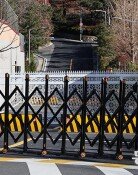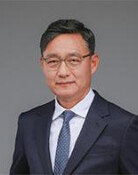Currency swap with the U.S. is needed urgently
Currency swap with the U.S. is needed urgently
Posted May. 14, 2022 07:32,
Updated May. 14, 2022 07:32
In the midst of the U.S. inflationary pressures that are weighing on the global economy, the Korean financial market is also in wild swing. With the Fed hinting at more rate increases, Korean currency is sharply depreciating. Foreigners are withdrawing their money from the Korean stock and bond market, out of the concerns for foreign exchange loss, raising alarm for financial risks.
The won-dollar exchange rate went back to the level in the 2009 financial crisis. An “interest rate reversal” between South Korea and the U.S. is expected, and the exchange rate is on the brink of breaking the 1,300-won range, the point at which investors could be psychologically rattled. With the declining value of the won, the sell-off of foreign investors in domestic financial market in 2022 has exceeded 15 trillion won. The foreign investment in domestic bond market also sharply declined to one in seventh in just three months.
The U.S.’s rapid tightening measures is driving currency depreciation not only in Korea but also in Japan and China. However, the size of the Korean economy is relatively smaller, and the Korean won is less competitive in global currency market, which is why there are concerns of more volatility in foreign currency market. When the value of the won sharply declines, the prices of import commodities, including oil and raw materials, will become more expensive, possibly adding more inflationary pressure.
It would be overly anxious to worry about a foreign exchange crisis, but it is necessary to prepare a safety net in case the worst scenario does occur. To respond to the U.S.’s tightening policy with interest rate hike would not be effective enough on the brink of a long-term economic recession. South Korea needs to conclude a currency swap agreement with the U.S. in the upcoming South Korea-U.S. summit.
A currency swap allows Korea to borrow U.S. dollars in exchange for an equivalent amount of Korean won. It is similar to creating a negative bankbook in the U.S. that prints dollars. A currency swap, regardless of the size, can effectively stabilize foreign exchange market solely by its symbolic meaning. Back in 2008, South Korea concluded a 30-billion-dollar currency swap agreement with the U.S. and overcame the global financial crisis. In March 2020, when the COVID-19 pandemic broke out, the two countries closed a FX swap deal, which expired in the end of 2021.
The U.S. established permanent swap lines with only few counterparts, such as EU, the U.K., and Japan, which have major currencies. It closes a swap arrangement with other countries only on a fixed term basis, and some critics view that the likelihood of South Korea closing a deal with the U.S. is not so high. However, the KORUS alliance is extending beyond military alliance and evolving into a comprehensive economic and security alliance by cooperating in various initiatives, including building a global semiconductor supply chain. We must ask the U.S. for what we need. If South Korea agrees on a quasi-permanent currency swap agreement with the U.S., the country’s financial market stability would be strengthened, and the U.S. would also benefit from the deal.
Headline News
- Joint investigation headquarters asks Yoon to appear at the investigation office
- KDIC colonel: Cable ties and hoods to control NEC staff were prepared
- Results of real estate development diverged by accessibility to Gangnam
- New budget proposal reflecting Trump’s demand rejected
- Son Heung-min scores winning corner kick







